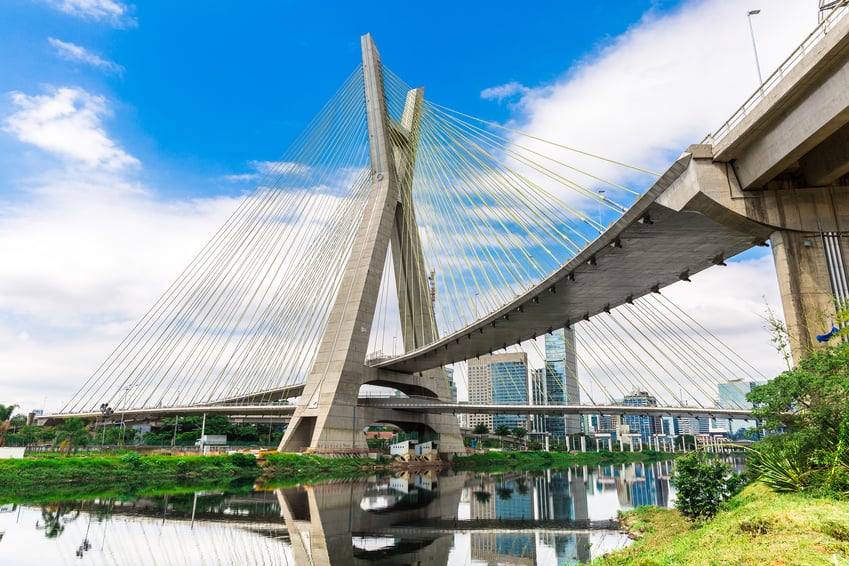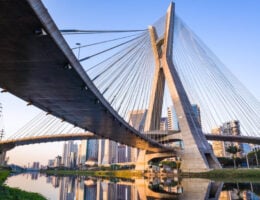The Brazilian Institute of the Environment and Renewable Natural Resources (IBAMA) established a new way of calculating the Environmental Control and Inspection Fee (TCFA) and, as of the first quarter of 2024, the economic size to be declared by subsidiaries will be the economic size of the parent company and the subsidiary jointly, considering the annual gross income of the legal entity as a whole for the basis for calculating this fee.
The rise of conscious consumerism has led to consumers actively seeking out sustainable, environmentally friendly and ethically produced goods. In response to this growing demand, many consumer goods and retail (CG&R) companies have embraced sustainability and green credentials as a marketing tool, but is this greenwashing? Baker McKenzie produced this guide to outline the legal landscape, regulations and key actions CG&R companies can take to mitigate the risks associated with greenwashing claims in Latin America.
On 9 February 2024, the Minas Gerais State Secretariat for the Environment and Sustainable Development (SEMAD in Portuguese) published Copam Normative Decision No. 249/2024, which defined the guidelines for implementing, operating and monitoring the take-back requirement systems in the state.
The National Bank for Economic and Social Development (Banco Nacional de Desenvolvimento Econômico e Social (BNDES)) has informed financial institutions of the extension of the prohibition on contracting rural credit operations and the suspension of the release of funds to clients with current embargoes registered in IBAMA’s Register of Environmental Charges and Embargoes and who have not taken effective measures to regularize them. SUP/ADIG Circular No. 76/2023-BNDES included this prohibition in SUP/AIDIG Circular No. 13/2022-BNDES, which sets out guidelines and general orientations for Accredited Financial Institutions. The Circular was published on 11 December 2023, and will come into effect on 10 March 2024.
On 21 December 2023, the Brazilian House of Representatives approved the new text of Bill 2.148/15, which aims to create the Brazilian Greenhouse Gas Emissions Trading System, i.e., the regulated carbon market in Brazil. The text will still be sent to the Brazilian Federal Senate and could return to the House of Representatives if further changes are made.
Gathering at a pivotal moment, the 28th Conference of the Parties unfolded against the backdrop of projections that 2023 is poised to be recorded as the warmest year on record. The accelerating impacts of climate change served as a stark reminder of the urgency addressed throughout the conference.
Baker McKenzie’s Global Climate Change practice was on the ground in Dubai, continuing a decade’s long commitment to be actively engaged in understanding how UNFCCC negotiations create opportunities for clients, and drawing from our observations, we’ve compiled a concise report outlining our perspective on the outcomes at COP28.
Federal Decree No. 11,786/2023 was published on 21 November 2023, establishing the National Policy for Quilombola Territorial and Environmental Management (PNGTAQ). The policy aims to, among others, support and promote territorial and environmental management practices of quilombola communities, strengthen the territorial and environmental rights of these communities, and promote the implementation of public policies in an integrated manner and the conservation and sustainable use of biodiversity.
On 6 November 2023, State Law No. 17,832 of 1 November 2023 was published in the Official Gazette of the State of Sao Paulo, creating the “Consolidation of the State’s Consumer Protection Laws,” which aims to unify the main laws that protect consumer rights in the state, bringing them together in a single document to facilitate legislative consultation.
Following the release of the inaugural standards of the International Sustainability Standards Board (ISSB) — IFRS S1 and IFRS S2 — the Securities and Exchange Commission of Brazil (CVM) released the first delivery of what it calls the CVM’s Sustainable Finance Action Plan: CVM Resolution 193, which deals with the preparation and disclosure by publicly traded companies, securitization companies and investment funds of financial information reports related to sustainability.
Countries are approaching plastics regulation in different ways. Measures that have been proposed and adopted vary and include imposing plastic taxes, bans on single-use plastics, microbead bans, deposit return schemes, and consumer charges to discourage consumption (e.g., carrier bag charges). At an international level, in 2022, a UN resolution was endorsed to end plastic pollution and propose an international legally binding agreement by 2024.








